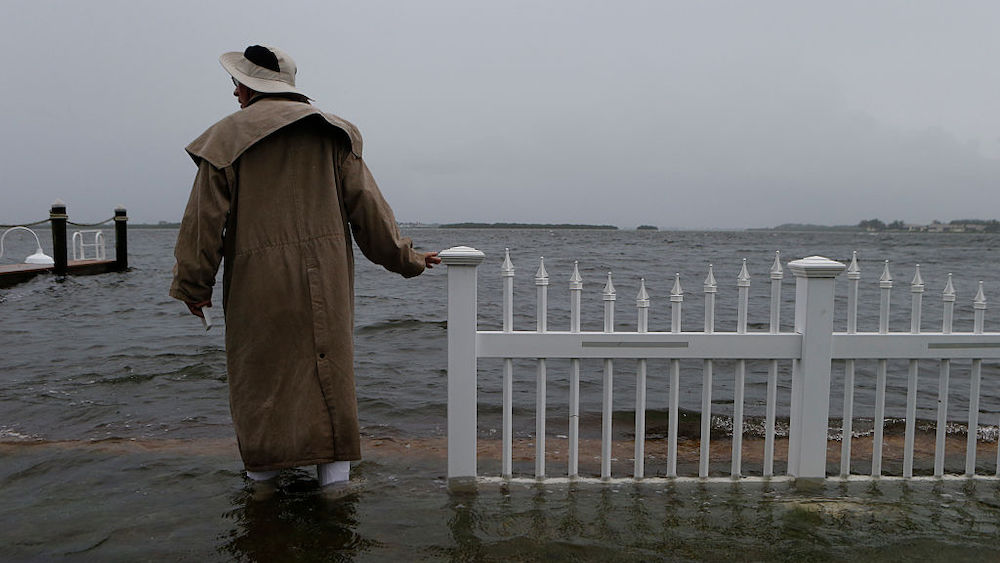
Brian Blanco/Getty Images
Fewer Americans are scooping up coastal real-estate these days — and the risk of rising sea levels appears to be driving the trend.
Researchers at the University of Pennsylvania studied the dynamics of coastal real-estate markets in Florida, where as many as one million homes are expected to be at risk of chronic flooding due to rising sea levels by the year 2100. Comparing homes in areas with more exposure to rising sea levels with those that are less at risk, the study found that today’s home buyers have far less interest in the more at-risk properties.
Before 2013, transaction volumes across these two sections of the market moved in tandem. But since then, they have diverged. The number of homes sold in the markets with the highest risk of “chronic inundation,” as some call it, fell between 16% and 20% from 2013 to 2018.
The drop in home sales, the researchers said, is a sign that “fewer buyers are willing to bear these risks at current market prices.” Indeed, the researchers’ analysis of mortgage lending data for these markets showed a willingness on the part of mortgage lenders to give home loans to buyers in both segments of the market. Therefore, the fall in sales was a reflection of buyers’ waning interest, the study concluded.
And in more recent years, the drop in transactions has started to effect the prices that sellers are fetching for their homes. Home prices in both markets rose between 2013 and 2015, but after that point prices in the more-exposed areas began to dip. The researchers noted that this trend matched what occurred in Florida during the housing bust that preceded the Great Recession.
“Falling sales volumes preceded sharp declines in prices,” the researchers wrote in the paper, which was distributed by the National Bureau for Economic Research. “The most natural explanation for this pattern is the shrinking and eventual departure of ‘market optimists’ from the market.”
“Prospective buyers have become more pessimistic about climate change risk than prospective sellers,” the researchers said.
Some buyers, though, do still seem motivated to purchase waterfront property. Notably, the researchers found that sales volume and price declines were greater in tracts with higher poverty rates than in wealthier communities. A 10% higher poverty rate in a community at significant risk due to rising water levels was associated with a 7% larger price decline for homes in that area.
“These communities may have less resources for adaptation, or sellers may have less flexibility regarding marking their assets to market,” the study’s authors noted as one possible explanation.
The post ‘Climate Change Risk’ May Be Spurring Home Buyers to Steer Clear of Coastal Florida Markets, Study Says appeared first on Real Estate News & Insights | realtor.com®.
